The New Normal
Students and universities adapt to remote learning during COVID-19
Until a few months ago, most students would probably have never imagined that going to university would mean sitting at home and attending a video call with their instructor.
Because of the COVID-19 pandemic, however, universities across the world have had to adapt their tried-and-tested methods. Most post-secondary programs in Manitoba are now being delivered virtually.
With University of Winnipeg (U of W) students beginning their classes this week, instructors and students are weighing the pros and cons of online learning. Though most classes will be delivered remotely, some labs will take place on campus.
Adam Leckie, an athletic therapy student, believes one of the biggest challenges for students in his faculty will be not having full access to the campus.
Spray-painted guides on the University of Winnipeg campus mark out two-metre intervals as a reminder of physical distancing. // Photo by Daniel Crump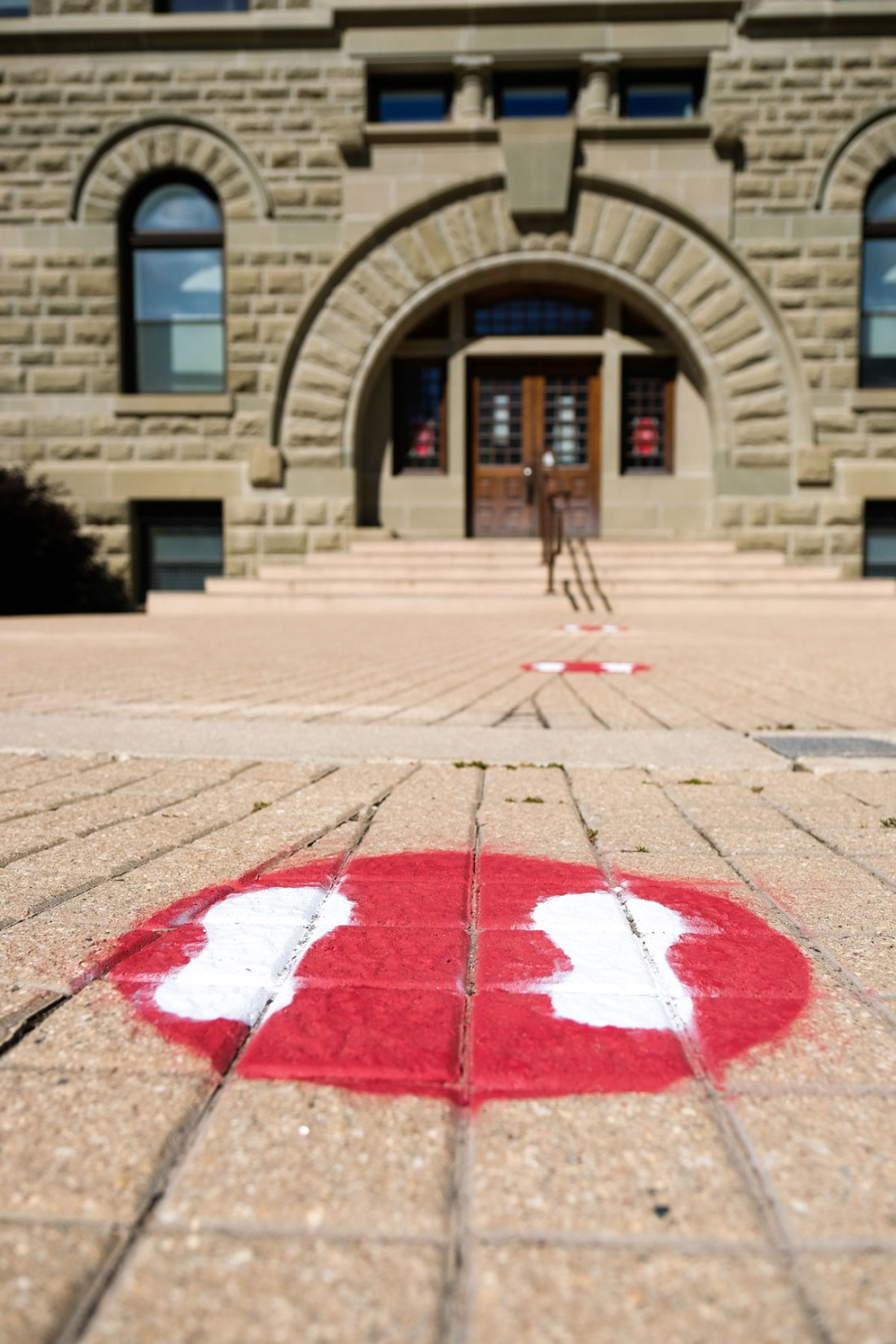
“It makes things more challenging, because you’re losing that (hands-on) aspect,” he says. However, he is looking forward to maintaining contact with professors and seeing his class uniting through these tough times.
“With difficult times, it’s really important to try to stay connected as best as we can,” Leckie says.
He believes it is crucial for students at home to stay diligent in their schoolwork.
“Treat it exactly like you would a regular class, even though you might be doing it from an office or a bedroom,” Leckie says.
The U of W is still offering student services, albeit remotely. This includes Academic and Career Services, Student Counselling, Aboriginal Student Services Centre and International, Immigrant and Refugee Student Services.
Pandemic pedagogy
While many Canadian universities offered online courses prior to COVID-19, it is a new medium for some students and can be burdensome. Most U of W courses will be conducted virtually via the online learning platform Nexus. In contrast with the winter term, when everything changed so abruptly, instructors and students have had the summer to prepare for this new learning environment.
Professors and instructors have had to adapt their courses to suit remote lectures.
“I think the time demand is one of the biggest challenges,” Dr. Jeannie Kerr says, noting that “it's really been like developing new courses – which takes a lot of time and thought.”
“I don’t think students can sit in front of computers all day and listen to people talk, so I tried to plan the courses so that students can engage with the courses more when it works for them,” Dr. Jeannie Kerr, associate professor of education. // Supplied image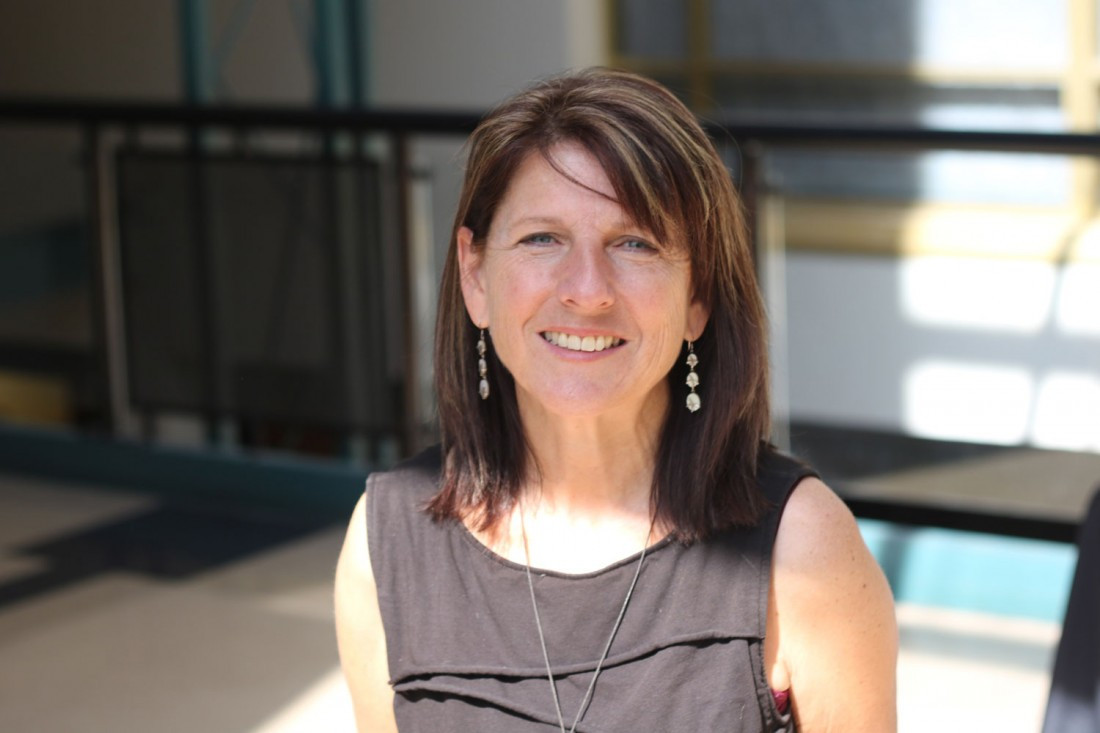
Kerr, an associate professor in the Faculty of Education, is teaching Contemporary Issues in Inner-City Education, Just and Effective Schooling and Advanced Curriculum Inquiry this autumn.
“I’ve made my courses a blended experience,” she says. Kerr will post her lectures online, allowing students to access them at any time, but will also arrange for “small, supportive groups to engage in activities together online.”
“I don’t think students can sit in front of computers all day and listen to people talk, so I tried to plan the courses so that students can engage with the courses more when it works for them,” she says.
Kerr is optimistic and says she is looking forward to learning how to be a present and supportive teacher at a distance. She says that while she prefers teaching in person, the switch to online learning has made her consider different possibilities.
“In teacher education, this may give us some experience in thinking how we might be able to support student teachers in remote communities without requiring them to leave their community to attend at the university,” she says.
Most faculty members and department assistants are working remotely. However, the U of W’s website states that campus visitors will be greeted by “ambassadors available in designated buildings to point you in the right direction and answer your questions while you are on campus.”
Connection conundrum
Chemistry professor Dr. Christopher Wiebe has also been thinking of how to accommodate all of his students.
“For me, it came down to a question of equity,” he says.
“I don’t think it’s fair to ask students to have (adequate) Wi-Fi,” Wiebe says, adding that varying internet qualities should not impact a student’s ability to learn. As such, his lectures are pre-recorded and will be posted on Nexus.
“I worry that this generation of students won’t have the skills they need to be competitive in the workforce, if they’re not getting the hands-on experience in the labs, for example, or face-to-face interaction with professors." - Chemistry professor Dr. Christopher Wiebe // Supplied image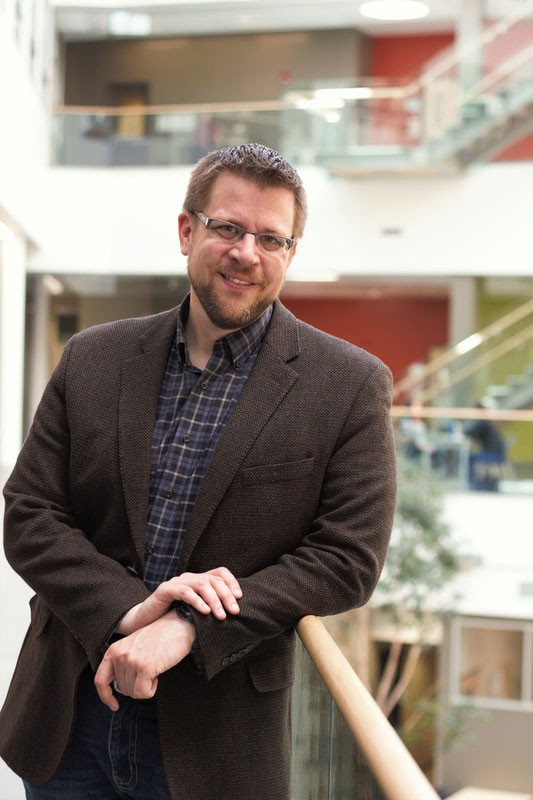
Wiebe, who is teaching Thermodynamics and Kinetics and Physical Chemistry this fall, used the U of W’s classroom studio to record. He appreciates having access to this “great resource.”
Pre-recorded lectures “will give students the greatest amount of flexibility, and they won’t have to worry about those internet issues,” Wiebe says.
With many educational institutions and workplaces moving online, conversations about internet speed disparities between households and whether internet connection should be considered a basic service have emerged.
Earlier this year, northern Manitoba’s Garden Hill First Nation had to cancel its school year due to “poor internet connectivity and lack of household computer adoption,” according to a June 2 CBC article.
“I worry that this generation of students won’t have the skills they need to be competitive in the workforce, if they’re not getting the hands-on experience in the labs, for example, or face-to-face interaction with professors,” Wiebe says.
These issues could be compounded by the current economic crisis and the employment difficulties facing recent or soon-to-be university graduates. However, despite all the unprecedented issues facing students and instructors, Wiebe is hopeful.
“There are resources that exist out there that we didn’t realize existed in the past,” he says.
Supporting students
During this turbulent time, the Government of Manitoba has been reluctant to increase university funding. However, Minister of Economic Development and Training Ralph Eichler believes that the best approach is to give support to students directly.
“Right now, post-secondary institutions need flexibility to effectively respond to the new economic and social realities created by the COVID-19 pandemic,” Eichler says in a statement to The Uniter.
“The Manitoba government is facing unprecedented financial pressures because of the COVID-19 pandemic and has been working in close partnership with universities and colleges to ensure student success and protect high-quality education while finding potential savings in non-essential areas,” he says.
Among the supports provided to students are a pause on student loan repayment until the end of September and more funding for scholarships and bursaries.
“Post-secondary education will play a critical role in Manitoba’s economic recovery,” Eichler says.
MLA Jamie Moses, New Democratic Party critic for Economic Development and Training, agrees that post-secondary institutions are “vitally important” at this time, but criticizes the provincial government for proposing funding cuts to universities this spring.
“At a time when most institutions are seeing their enrollment increase, funding should be available to make the transition to digital and remote learning more effective, as well as providing that assistance with tuition,” Moses says.
At the U of W, there is no tuition reduction due to the pandemic. However, the online course and the fitness centre fees are being waived for the fall term.
“It’s absolutely essential that we support our frontline and critical workers during the pandemic, while realizing that our economy is going to get driven by having strong post-secondary institutions.” - MLA Jamie Moses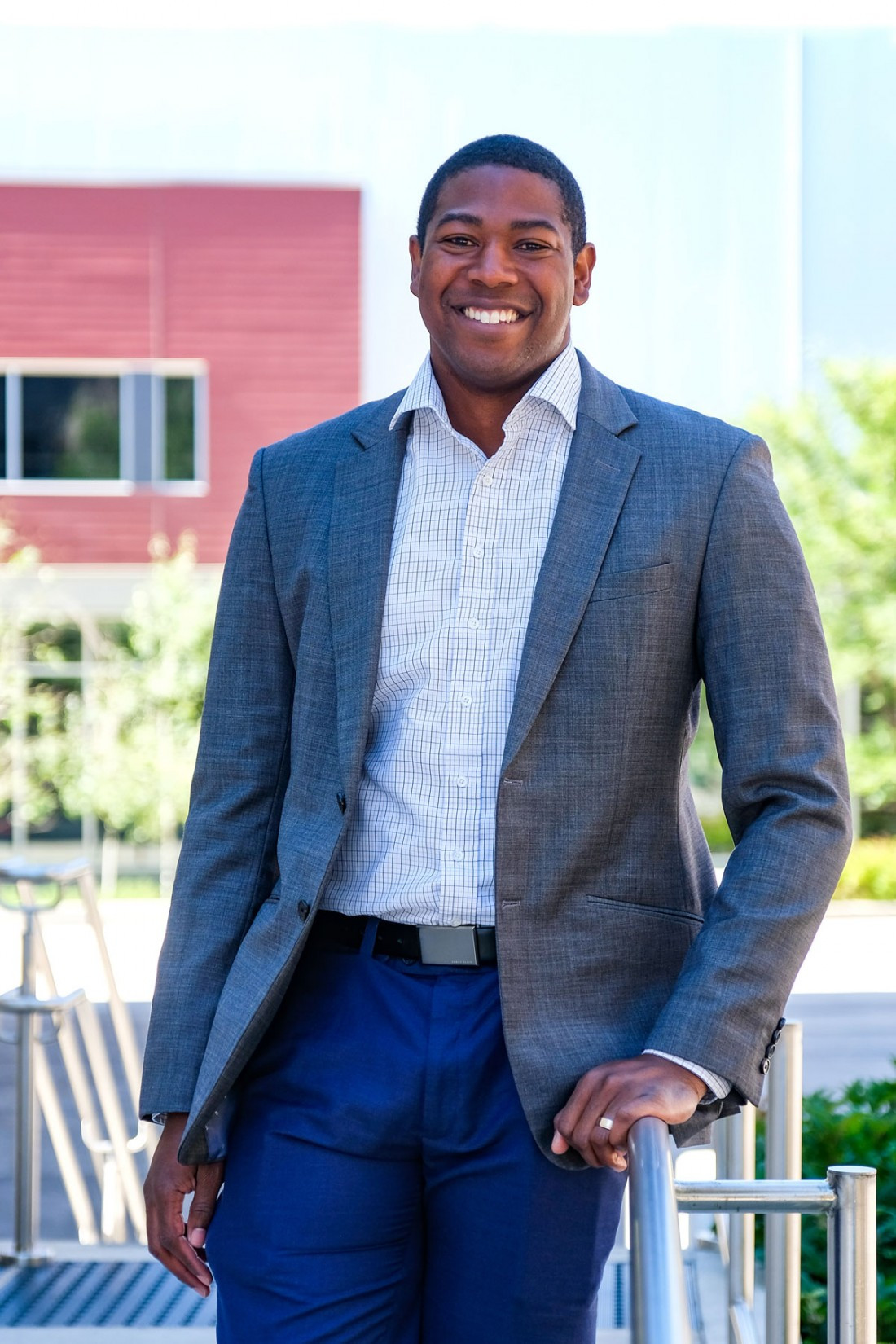
Throughout the COVID-19 crisis, the provincial government has repeatedly stressed the importance of redirecting funding to frontline workers. However, “governments should have the ability to do more than one thing really well at the same time,” Moses says.
“It’s absolutely essential that we support our frontline and critical workers during the pandemic, while realizing that our economy is going to get driven by having strong post-secondary institutions,” he says.
Moses notes the importance of universities creating their own strategic plans for safety on campus, campus living and the transition to online learning.
“The provincial government’s role should be to support that.”
In person … impossible?
As this ever-evolving crisis continues, it is unclear when Manitoba’s universities will return to mostly in-person instruction. The U of W has yet to officially announce whether or not the winter term will follow the same procedures as the fall session.
“It is up to each institution to determine the needs of students and staff and ensure their health and safety,” since “every college and university has its own unique circumstances,” Eichler says.
“Manitoba’s post-secondary institutions have met with Chief Provincial Public Health Officer Dr. Brent Roussin and are working closely with public health officials and Manitoba Economic Development and Training to review their plans to operate safely,” he says.
With many educational institutions and workplaces moving online, conversations about internet speed disparities between households and whether internet connection should be considered a basic service have emerged.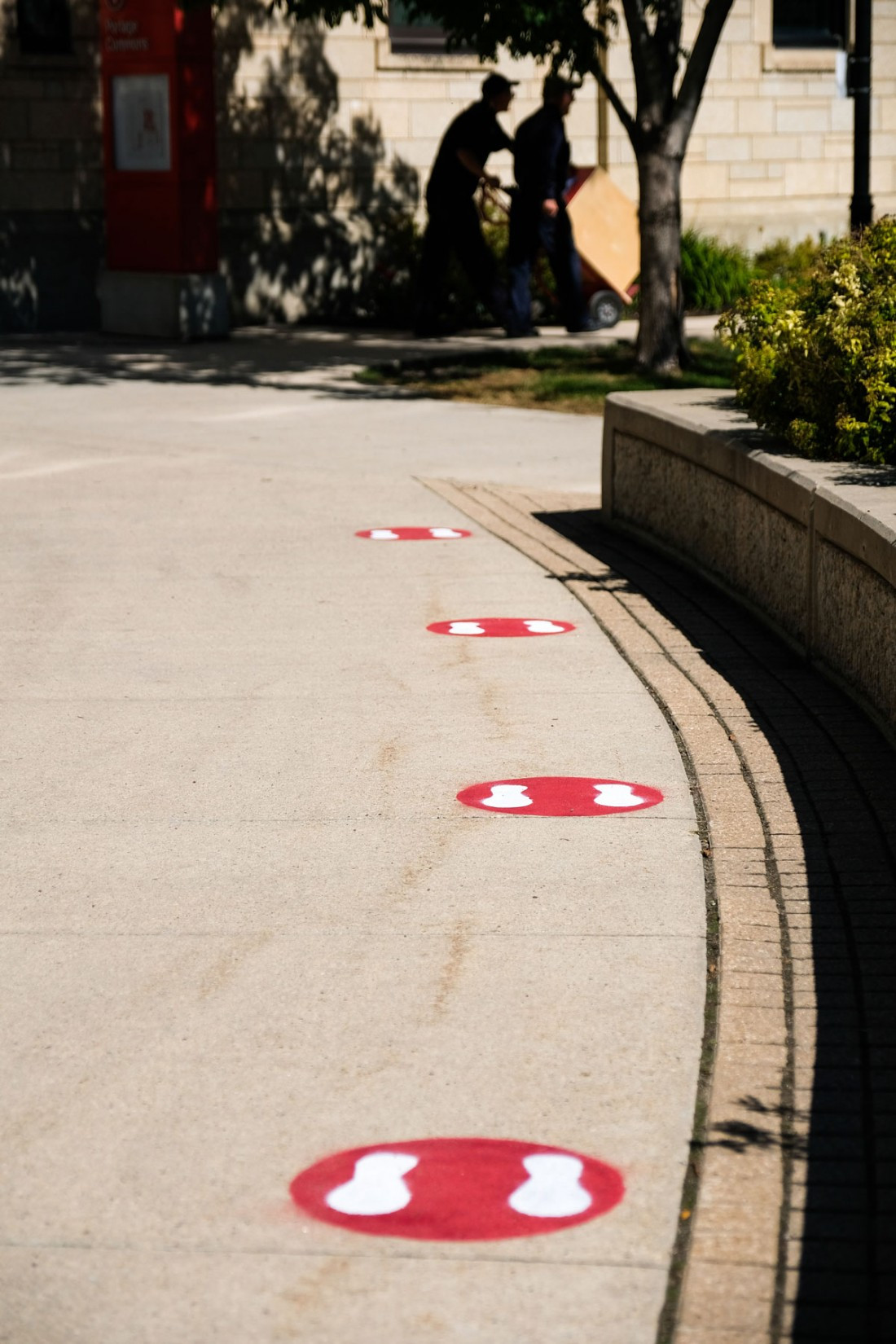
Moses emphasizes the importance of listening to public health experts.
“The best and safest approach to be taking is to listen to the experts and to follow their guidelines,” he says.
As COVID-19 cases continue to rise in Manitoba, students like Adam Leckie believe the U of W made the right decision to go online this fall.
“It’s a very smart thing to do, to keep everyone distanced as best we can,” he says. For the few who will be on campus, masks are required (and provided), and protocols have been put in place, such as sanitizing stations, increased cleaning, occupancy limits and hallway “flows” (signage which ensures proper social distancing in corridors and walkways).
“I think it’s definitely going to help tamper the spread of the virus,” Leckie says.
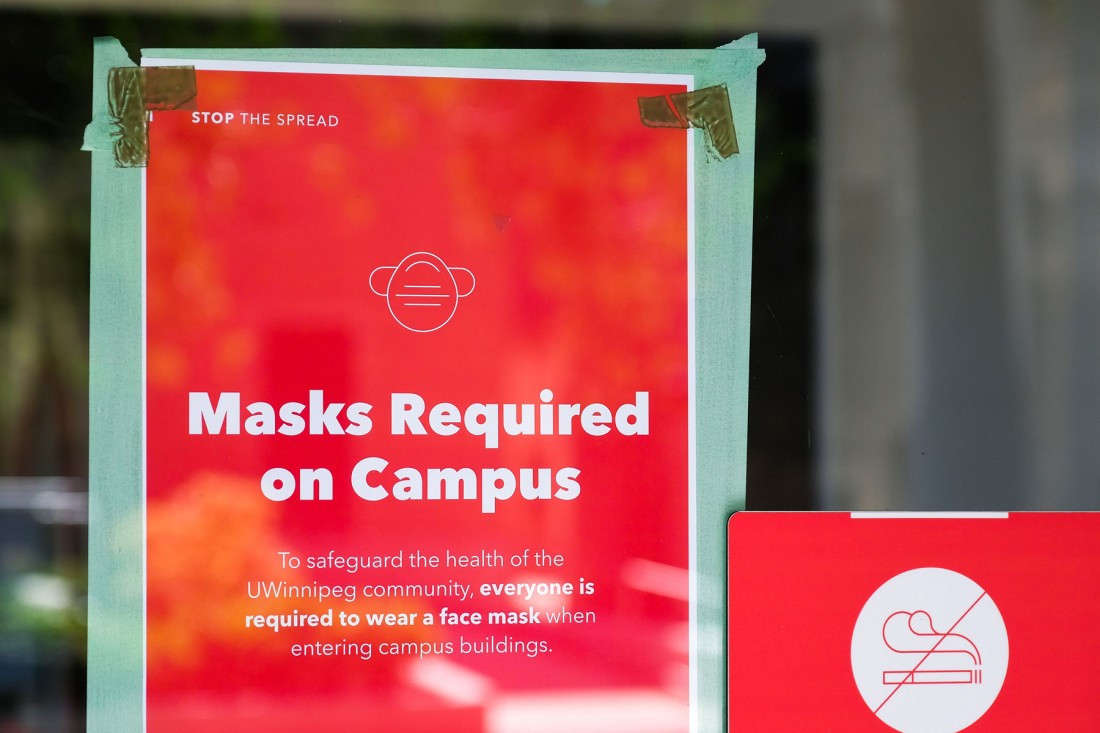
Signage on the doors of Centennial Hall informs people of new pandemic safety protocols on campus.
Published in Volume 75, Number 01 of The Uniter (September 10, 2020)






